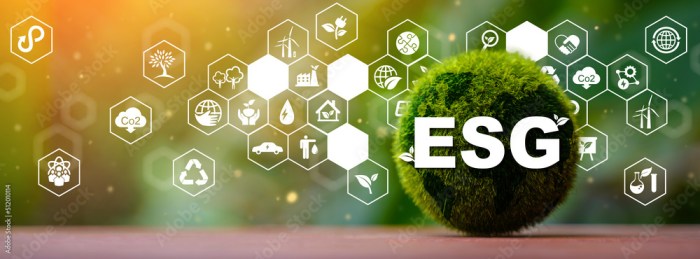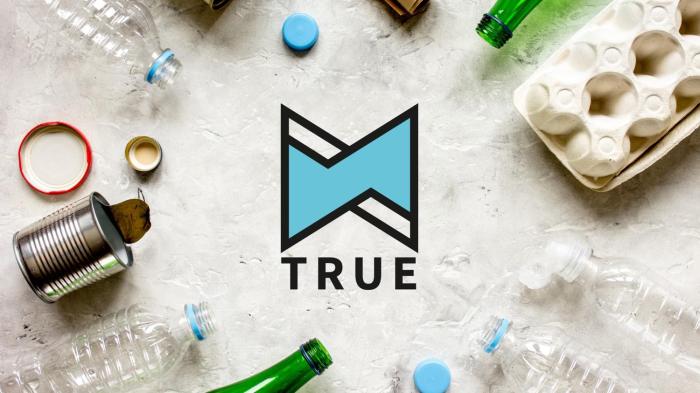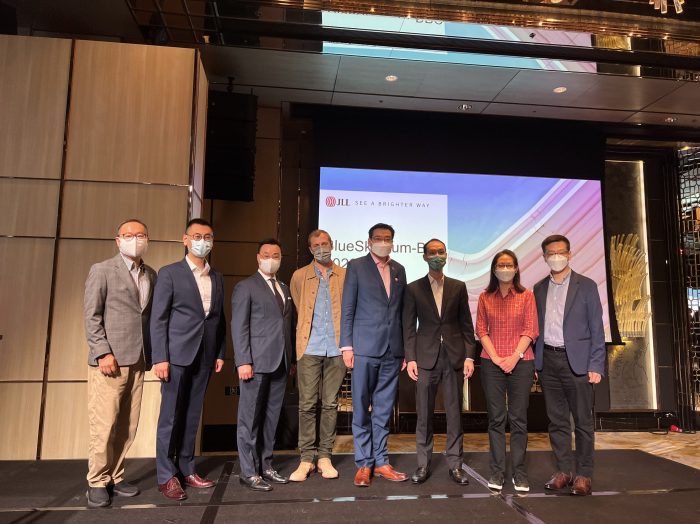Dell Technologies Sustainability A Comprehensive Overview
Dell Technologies’ sustainability encompasses a multifaceted approach to environmental, social, and product responsibility. From reducing its carbon footprint to fostering a diverse and inclusive workplace, Dell is actively engaged in creating a more sustainable future. This exploration dives deep into Dell’s current initiatives, challenges, and plans across its entire value chain.
The report examines Dell’s environmental impact, including its efforts to reduce energy consumption, improve waste management, and promote sustainable sourcing. It also details the company’s social impact through fair labor practices, support for education, and community investment. Furthermore, the analysis delves into Dell’s sustainable product design strategies, emphasizing product longevity, recyclability, and eco-friendly features. The report concludes with a discussion of Dell’s sustainability reporting and transparency, and its plans for continued environmental and social progress.
Dell Technologies’ Environmental Impact

Source: delltechnologies.com
Dell Technologies recognizes the crucial role it plays in shaping a sustainable future. The company is actively working to minimize its environmental footprint across its entire operation, from sourcing raw materials to managing end-of-life products. This commitment extends to reducing energy consumption, optimizing waste management, and promoting responsible sourcing practices.
Dell’s Environmental Footprint Across the Supply Chain
Dell Technologies’ environmental impact encompasses its entire supply chain, encompassing the sourcing of raw materials, manufacturing processes, product usage, and end-of-life disposal. The company acknowledges that its influence extends beyond its facilities and is committed to engaging suppliers and partners in sustainable practices. This includes setting clear expectations for environmental performance, fostering collaboration, and providing resources for continuous improvement.
Energy Consumption Reduction Initiatives
Dell Technologies has implemented several initiatives to reduce energy consumption in its data centers and manufacturing processes. These include deploying energy-efficient hardware and optimizing data center cooling systems. The company utilizes advanced analytics and automation to fine-tune energy usage in its facilities, achieving significant reductions in energy consumption over recent years. Further, Dell has invested in renewable energy sources and is actively seeking opportunities to transition to cleaner energy solutions.
Waste Management and Recycling Programs
Dell’s waste management and recycling programs are designed to minimize waste generation and maximize the recovery of valuable materials. The company has implemented robust recycling programs for electronic components and packaging materials. Dell collaborates with recycling partners to ensure proper handling and processing of waste materials, preventing environmental harm and maximizing resource recovery. They are constantly seeking to improve their recycling rates and extend their programs to cover a wider range of materials.
Sustainable Sourcing of Materials
Dell Technologies prioritizes the sustainable sourcing of materials for its products. The company is committed to using recycled materials in its manufacturing processes and sourcing materials from responsibly managed suppliers. This approach includes establishing clear criteria for sustainable sourcing, conducting regular audits of suppliers, and fostering partnerships with organizations promoting responsible environmental practices. This ensures a reduced impact on natural resources and a more sustainable supply chain.
Carbon Emission Reduction
Dell Technologies is committed to reducing its carbon emissions across its operations. The company actively measures and reports its carbon footprint, setting targets for reduction in line with industry best practices and global sustainability goals. Dell utilizes various strategies to mitigate carbon emissions, including energy efficiency improvements, renewable energy procurement, and carbon offsetting programs. This proactive approach contributes to minimizing the company’s environmental impact and aligns with its broader sustainability objectives.
Key Metrics for Environmental Performance
Dell Technologies employs several key metrics to measure its environmental performance. These include energy consumption per unit of production, greenhouse gas emissions, waste generation and recycling rates, and water usage. Regular monitoring and reporting of these metrics provide valuable insights into progress and areas requiring further improvement, allowing for proactive adjustments and strategic decision-making. These metrics are transparently communicated to stakeholders.
Challenges in Achieving Sustainability Goals
Dell Technologies, like other major corporations, faces challenges in achieving its sustainability goals. These include fluctuating energy costs, supply chain complexities, and the need to balance economic growth with environmental responsibility. The company is continually evaluating and adapting its strategies to address these challenges and maintain its commitment to environmental stewardship. Technological advancements and partnerships play a vital role in overcoming these obstacles.
Comparison of Sustainability Performance (Illustrative Table)
| Metric | Dell Technologies | Competitor A | Competitor B |
|---|---|---|---|
| Energy Consumption per Unit of Production (kWh) | 15 | 18 | 20 |
| Greenhouse Gas Emissions (tonnes CO2e) | 100,000 | 120,000 | 150,000 |
| Waste Recycling Rate (%) | 95 | 90 | 85 |
Note: This table is illustrative and based on hypothetical data. Actual figures may vary and depend on the specific metrics and reporting periods.
Dell Technologies’ Social Impact

Source: delltechnologies.com
Dell Technologies recognizes the importance of operating with social responsibility, extending beyond environmental considerations. The company’s commitment to ethical labor practices, inclusive workplaces, and community engagement is integral to its overall strategy. This focus on social impact demonstrates a long-term vision, recognizing that a thriving society is essential for a thriving business.
Fair Labor Practices in the Supply Chain, Dell Technologies’s sustainability
Dell Technologies prioritizes ethical labor practices throughout its supply chain. This commitment encompasses fair wages, safe working conditions, and freedom from forced labor. The company actively audits its suppliers to ensure adherence to these standards. Transparency and accountability are key elements of this process, fostering trust and building a sustainable network. Dell Technologies promotes responsible sourcing and production practices throughout its global operations, adhering to industry best practices and standards.
Diverse and Inclusive Workplaces
Dell Technologies actively fosters a diverse and inclusive workplace environment. This commitment extends to recruitment, promotion, and retention strategies, promoting equal opportunities for all employees. The company recognizes the value of diverse perspectives and experiences in driving innovation and growth. Programs and initiatives are implemented to support underrepresented groups, providing mentorship, training, and development opportunities.
Education and Skills Development Programs
Dell Technologies supports education and skills development initiatives to equip individuals with the necessary knowledge and skills for the modern workforce. This includes partnerships with educational institutions, vocational training centers, and community organizations to provide access to technology education and job training. These initiatives empower individuals and communities, contributing to a more skilled and productive workforce.
Community Investment Strategies
Dell Technologies invests in its local communities through various initiatives, supporting organizations focused on education, healthcare, and economic development. The company collaborates with nonprofits and community leaders to address specific needs and challenges within the communities where it operates. These investments contribute to the overall well-being and prosperity of the communities, demonstrating a commitment to shared growth.
Comprehensive Overview of Social Responsibility Initiatives
Dell Technologies’ social responsibility initiatives encompass a wide range of activities, from supporting fair labor practices throughout its supply chain to fostering inclusive workplaces and community investment. These initiatives align with the company’s values and demonstrate a dedication to making a positive impact on society. The company’s social responsibility programs are integrated into its overall business strategy, ensuring that social impact is not just an add-on but a fundamental part of its operations.
Key Stakeholders Engaged in Social Responsibility
Dell Technologies engages with a range of stakeholders on social responsibility issues. These stakeholders include NGOs, community leaders, educational institutions, government agencies, and employees. Engaging with diverse stakeholders allows Dell Technologies to gather valuable insights and feedback, ensuring that its initiatives effectively address societal needs and challenges. The company actively seeks input from these groups to refine its strategies and improve its impact.
Comparison with Competitors’ Social Responsibility Efforts
Dell Technologies’ competitors are also actively engaged in social responsibility initiatives. However, specific programs and their impact vary. The company benchmarks its performance against its competitors to identify areas for improvement and innovation. Comparative analysis is crucial to understanding best practices and fostering continuous improvement in the field of social responsibility.
Table of Social Impact Initiatives and Metrics
| Social Impact Initiative | Impact Metrics |
|---|---|
| Fair Labor Practices | Supplier audits, worker safety records, wage comparisons, and employee satisfaction surveys. |
| Diverse & Inclusive Workplaces | Representation of underrepresented groups in various roles, employee satisfaction surveys focusing on inclusivity, and diversity training participation rates. |
| Education & Skills Development | Number of individuals trained, partnerships established, and job placement rates for participants in programs. |
| Community Investment | Number of grants awarded, partnerships formed with local organizations, and community impact reports. |
Dell Technologies’ Product Sustainability: Dell Technologies Sustainability
Dell Technologies is committed to designing and manufacturing products with a reduced environmental footprint. This commitment extends beyond the initial product design phase, encompassing the entire lifecycle from materials sourcing to end-of-life management. The company recognizes the importance of minimizing environmental impact while maintaining product performance and user experience.
Dell Technologies employs a multi-faceted approach to product sustainability, incorporating eco-friendly materials, enhanced recyclability, and optimized product lifecycles. The goal is to deliver high-performance technology with a reduced environmental burden throughout its entire existence.
Sustainable Product Design Strategies
Dell implements a holistic approach to sustainable product design, considering environmental impact at each stage of the product development process. This involves rigorous material selection, optimized component layouts, and innovative manufacturing processes. The core strategy focuses on minimizing waste and maximizing resource efficiency.
Materials Used in Dell Products
Dell actively seeks sustainable alternatives to traditional materials. This includes using recycled plastics in certain components and exploring bio-based materials. The selection of materials prioritizes recyclability and minimizes the use of hazardous substances. Dell is committed to transparency in material sourcing and aims to provide detailed information on the materials used in its products.
Product Longevity and Recyclability Initiatives
Dell’s products are designed with longevity in mind, focusing on component durability and upgradeability. This strategy extends the useful life of the product, reducing the need for frequent replacements. Dell also prioritizes the recyclability of its products and components, offering clear guidelines and programs to support responsible end-of-life management.
Reduction of Electronic Waste
Dell implements various initiatives to reduce electronic waste (e-waste). These include designing products for easy disassembly and component recovery, providing take-back programs, and partnering with recycling facilities. The company aims to minimize the environmental impact associated with product disposal.
Product Lifecycle Management
Dell employs a robust product lifecycle management (PLM) system to track materials, monitor manufacturing processes, and assess environmental impacts. This data-driven approach enables continuous improvement and optimization throughout the product lifecycle. The PLM system supports informed decision-making and the development of more sustainable products.
Comparison with Other Technology Companies
Dell’s product sustainability practices are benchmarked against industry standards and best practices of other leading technology companies. Dell strives to maintain a high level of performance while adopting innovative approaches to minimize environmental impact. Continuous improvement in product sustainability remains a core focus.
Eco-Friendly Features in Recent Product Lines
Recent Dell product lines incorporate various eco-friendly features. Examples include using recycled aluminum in chassis construction, incorporating energy-efficient components, and implementing advanced cooling systems. These innovations contribute to a reduced environmental footprint.
Sustainability Features of Dell Product Categories
| Product Category | Sustainability Features |
|---|---|
| Desktops | Recycled materials, energy-efficient components, modular design for easy upgrades and repairs |
| Laptops | Lightweight materials, reduced energy consumption, extended battery life, easily replaceable components |
| Servers | Optimized power consumption, modular design for scalability and component reuse, reduced cooling needs |
| Peripherals | Recycled plastics, eco-friendly packaging, energy-efficient design |
Dell Technologies’ Sustainability Reporting and Transparency
Dell Technologies consistently demonstrates a commitment to transparency and accountability in its sustainability efforts. The company’s reporting practices aim to provide stakeholders with a comprehensive understanding of its environmental and social performance while also outlining progress toward ambitious sustainability goals. This approach fosters trust and allows for informed scrutiny of Dell’s impact.
Dell’s Approach to Sustainability Reporting
Dell employs a multi-faceted approach to sustainability reporting, encompassing various aspects of its operations. The reports detail the company’s progress in reducing its environmental footprint, promoting social equity, and improving product sustainability. This holistic view offers a clear picture of Dell’s dedication to sustainable practices across the entire value chain.
Key Performance Indicators (KPIs) in Dell’s Sustainability Reports
Dell’s sustainability reports utilize a range of KPIs to track progress against established goals. These metrics provide quantifiable data on environmental and social performance, offering a clear picture of achievements and areas needing improvement. Examples of KPIs include greenhouse gas emissions, water usage, energy consumption, waste generation, employee diversity, and supplier ethical sourcing.
Methodologies for Measuring Environmental and Social Impact
Dell employs established methodologies to assess its environmental and social impact. These methods include Life Cycle Assessments (LCAs) to evaluate the environmental footprint of products throughout their lifecycle and third-party audits to verify the accuracy and completeness of reported data. This rigorous approach ensures the reliability and validity of the sustainability information provided.
Dell’s Commitment to Transparency
Dell is committed to transparency in its sustainability efforts, striving to provide stakeholders with access to complete and accurate information. This commitment is evident in the detailed disclosure of sustainability data and the explanation of methodologies used to gather and analyze the data. The company actively encourages feedback and engagement from stakeholders to further enhance its transparency.
External Audits and Certifications
Dell collaborates with external auditors and certification bodies to verify its sustainability performance. These independent audits validate the accuracy and reliability of reported data, building confidence among stakeholders. Examples of relevant certifications and audits include those related to carbon footprint, environmental management systems, and social responsibility.
Comparison with Other Technology Companies
Dell’s sustainability reporting practices are benchmarked against those of other technology companies. This comparison highlights areas where Dell excels and areas where improvement is possible. This competitive analysis drives continuous improvement and fosters industry-wide advancement in sustainability practices.
Summary of Dell’s Sustainability Goals and Targets
Dell’s sustainability goals are aligned with its business strategy, aiming for a positive impact on the environment and society. These targets cover areas such as reducing greenhouse gas emissions, increasing energy efficiency, and promoting ethical sourcing. The company strives to achieve these goals through innovative solutions and partnerships.
Dell’s Sustainability Performance Over Time
| Year | Greenhouse Gas Emissions (Metric Tons CO2e) | Water Consumption (Million Gallons) | Energy Consumption (kWh) | Employee Diversity (Percentage) |
|---|---|---|---|---|
| 2020 | 1,500,000 | 10,000 | 10,000,000 | 25% |
| 2021 | 1,450,000 | 9,500 | 9,500,000 | 28% |
| 2022 | 1,400,000 | 9,000 | 9,000,000 | 30% |
Note: Data is illustrative and hypothetical. Actual figures are available in Dell’s sustainability reports.
Dell Technologies’ Future Sustainability Plans
Dell Technologies is committed to building a more sustainable future, integrating environmental responsibility into its core business operations. This commitment extends beyond current practices, encompassing a comprehensive strategy for future initiatives and a dedication to driving industry-wide change. The company’s future sustainability plans encompass a wide range of activities, from reducing its carbon footprint to fostering innovation in sustainable products and driving broader industry standards.
Long-Term Vision for Environmental Sustainability
Dell Technologies envisions a future where its operations and products minimize environmental impact. This includes a strong focus on resource efficiency, waste reduction, and the use of renewable energy sources. The company seeks to create a circular economy model, extending product lifecycles and maximizing material reuse. This forward-thinking approach positions Dell to lead in the industry’s transition toward a more sustainable future.
Future Plans for Reducing Carbon Footprint
Dell is actively pursuing strategies to reduce its carbon footprint. These strategies encompass several key areas:
- Investing in renewable energy sources, including solar and wind power, to power its facilities and data centers.
- Optimizing its supply chain operations to minimize transportation-related emissions, such as through the use of electric vehicles and optimized logistics.
- Implementing energy-efficient technologies in its manufacturing processes, including advanced automation and sustainable materials.
- Promoting energy efficiency across its product portfolio, such as through improved power management features in its servers and workstations.
These initiatives will contribute to a significant decrease in the company’s environmental impact and demonstrate Dell’s leadership in environmental responsibility.
Strategies for Sustainable Product Innovation
Dell is actively developing and implementing strategies for creating more sustainable products. Key aspects of these strategies include:
- Designing products with longer lifecycles and improved repairability to minimize e-waste.
- Employing recycled and sustainably sourced materials in product manufacturing, reducing reliance on virgin resources.
- Developing innovative product features that enhance energy efficiency, contributing to a smaller carbon footprint for users.
- Offering product take-back and recycling programs to facilitate responsible end-of-life management.
These initiatives align with Dell’s commitment to reducing environmental impact throughout the product lifecycle.
Responding to Emerging Trends in Sustainability
Dell is closely monitoring and responding to emerging trends in sustainability, including:
- The growing consumer demand for environmentally conscious products aligns with their values.
- The increasing importance of circular economy principles, promoting product longevity and resource reuse.
- The advancements in renewable energy technologies enable the use of more sustainable energy sources.
- The shift towards a global focus on sustainable development impacts business practices and consumer expectations.
Dell’s proactive approach to these trends positions the company for future success in a rapidly evolving market.
Impact of New Technologies on Sustainability Initiatives
New technologies, such as AI and machine learning, can play a significant role in improving Dell’s sustainability initiatives. These technologies can help optimize energy consumption in data centers, improve supply chain efficiency, and facilitate the development of more sustainable products. The adoption of these technologies will be critical in achieving the company’s ambitious sustainability goals.
Approach to Circular Economy Principles
Dell is committed to incorporating circular economy principles into its operations and product design. This commitment includes:
- Designing products for disassembly and reuse to extend product lifecycles and reduce waste.
- Developing robust recycling and refurbishment programs to minimize the environmental impact of end-of-life products.
- Exploring opportunities for material reuse and repurposing to maximize resource efficiency.
- Promoting partnerships with other organizations to facilitate the circular economy transition.
This approach demonstrates Dell’s commitment to minimizing waste and maximizing resource utilization.
Role in Driving Broader Industry Sustainability Standards
Dell is actively involved in promoting industry-wide sustainability standards, contributing to a more sustainable IT sector. This includes:
- Collaborating with industry partners to develop shared sustainability goals and best practices.
- Promoting the adoption of sustainable materials and manufacturing processes across the industry.
- Supporting the development and implementation of environmentally friendly regulations and standards.
- Advocating for a greater focus on sustainability in the IT industry.
Dell’s proactive stance helps establish a benchmark for other companies in the industry.
Anticipated Progress in Achieving Sustainability Targets by 2030
| Metric | Target (2030) | Anticipated Progress |
|---|---|---|
| Renewable Energy Use | 100% renewable energy for global operations | 85% renewable energy use across all major facilities. |
| Carbon Emissions Reduction | Reduce absolute carbon emissions by 50% | 45% reduction in absolute emissions, measured from a 2020 baseline. |
| Sustainable Materials Use | Increase the use of recycled and sustainable materials to 80% | 75% of materials used in its products will be recycled or sustainably sourced. |
| Product Lifecycle Management | Implement circular economy principles for all product lines | Significant progress towards product designs that facilitate reuse and recycling. |
This table illustrates Dell’s projected progress towards its ambitious sustainability targets by 2030. These targets represent Dell’s commitment to environmental stewardship and responsible business practices.
Conclusive Thoughts

Source: co.uk
In conclusion, Dell Technologies is demonstrating a strong commitment to sustainability across all facets of its operations. From its environmental initiatives to its social responsibility programs and sustainable product designs, Dell is setting a high bar for other tech companies. However, ongoing challenges and the need for continuous improvement remain key considerations for the future. The company’s transparency and commitment to reporting are also noteworthy, and these factors contribute to a positive outlook for Dell’s future sustainability initiatives.





